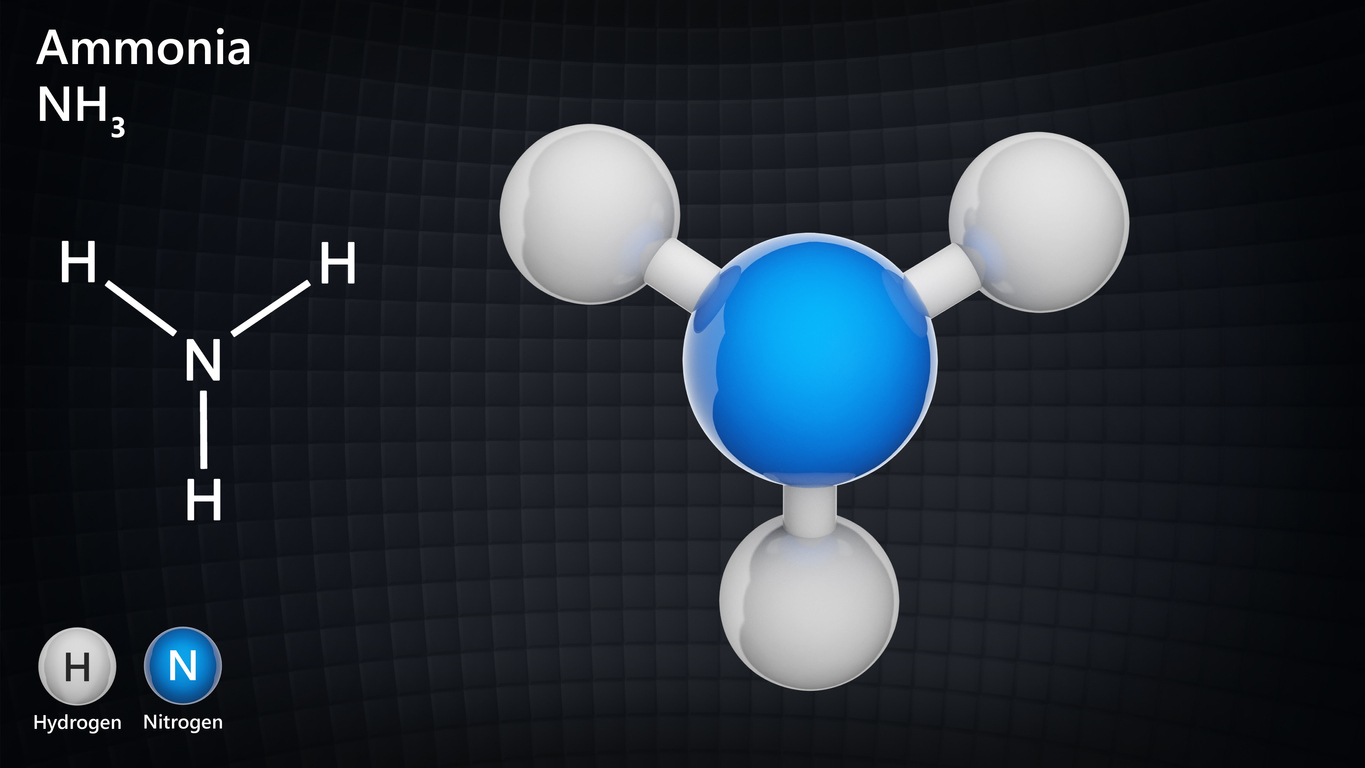Ammonia – A Useful Chemical You Can Buy in Nigeria
Ammonia – A Useful Chemical You Can Buy in Nigeria
Ammonia is a chemical substance with multiple applications in everyday life. In general, it is known as a colourless gas with an suffocating odour. When found in liquid form or dissolved in water, ammonia has an intense smell of fish and onion. Ammonia is produced from the fermentation of organic matter and has many industrial uses. It is classified as a weak base because it reacts with acids to produce neutral salt and water but not oxide or hydroxide like stronger bases such as sodium hydroxide and alkali metals. Ammonia can be used to make urea (for fertiliser), nitric acid, ammonium nitrate (for explosives), synthetic rubber, etc. This article explores the properties of ammonia, its applications in everyday life, how it is made, and where you can buy it in Nigeria if you want to pursue the business opportunity.
What is Ammonia?
Ammonia is a colourless gas or liquid with a strong fishy-onion-like odour. It is also an alkaline chemical compound composed of nitrogen and hydrogen. It is a strong base and is usually obtained from hydrogen and nitrogen. It is also used in fertilizers, household cleaners, and as a source of energy. Ammonia is also a precursor in the production of many chemicals. It is used as a fertilizer, in the production of plastics, as a refrigerant, and in the manufacture of synthetic rubber. It is also used in the production of drugs, explosives, dyes, and a host of other products.
Properties of Ammonia
– General Properties Ammonia is a strong base that has a fishy smell when dissolved in water. Ammonia solution (in water) is very basic. Ammonia is a colourless liquid that is slightly soluble in water. It is a volatile, flammable, highly toxic gas with a pungent smell that can be irritating to the eyes, skin, and respiratory system. – Physical Properties Ammonia is a colourless gas at room temperature. It is highly soluble in water, like in many other liquids. It is highly soluble in water, like in many other liquids. On evaporation, ammonia leaves behind a crystalline substance called ammonium hydroxide, which is very soluble in water, and makes it alkaline. – Chemical Properties Ammonia is a strong base. It can react with acids to produce salts and water. The strong smell of ammonia is due to hydroxide ions in aqueous solution. Its chemical formula is NH3. Its molecular weight is 17.02.
Everyday Uses of Ammonia
– Fertilizers: Ammonia is used to produce fertilizers such as urea and ammonium phosphate. Urea is used in fertilizers and as a source of nitrogen in animal feed. Urea is a source of plant nutrients, especially nitrogen. It decomposes slowly and improves the soil’s structure and drainage properties. Ammonium phosphate is a common source of phosphorus in fertilizers. It is an ingredient in many synthetic fertilizers, including all of the common brands. Ammonia is used for other types of fertilizer like nitrate, phosphate and potash. Ammonia is produced from the fermentation of organic matter, especially from the amino acids in plants. – Household Cleaners: Ammonia is used to make household cleaners. It is a very common ingredient in many household cleaners like toilet bowl cleaners, toilet cleaners and all-purpose cleaners. – Chemical Production: Ammonia is used in the production of other chemicals like urea, ammonium nitrate (for explosives), ammonium sulfate, nitric acid, etc.
How is Ammonia Made?
The most common method for industrial production of ammonia is the Haber process. The process is named after its inventor, Fritz Haber, who was awarded the 1918 Nobel Prize in Chemistry for the discovery. Ammonia is commercially produced from natural gas, coal, oil, or biomass (organic matter like agricultural waste like corn stalks or sugar cane bagasse, etc.). The source gas is converted to a hydrogen-rich gas through a process called partial oxidation or steam reforming. Ammonia can also be produced from solar energy by splitting water into hydrogen and oxygen using photoelectrochemical cells or by using artificial photosynthesis. The hydrogen-rich gas is passed over an iron catalyst at high temperatures, which decomposes it and produces ammonia and hydrogen. The ammonia is then passed through a water-gas shift reaction where it reacts with water to produce hydrogen and ammonium hydroxide. The ammonium hydroxide can be used as a fertilizer.
Where You Can Buy Ammonia in Nigeria
If you want to buy ammonia in Nigeria, you can find it in any industrial chemical supplier in Lagos, Ibadan, or any other big city in Nigeria. You can also search online and find chemical suppliers who sell ammonia. Ammonia is a useful chemical that can be used to produce other chemicals, fertilizers, household cleaners, etc. It is a strong base and is usually obtained from hydrogen and nitrogen. Ammonia can also be produced from solar energy by splitting water into hydrogen and oxygen using photoelectrochemical cells or by using artificial photosynthesis. If you want to buy ammonia in Nigeria, you can find it in any industrial chemical supplier in Lagos, Ibadan, or any other big city in Nigeria.








LEAVE A COMMENT
You must be logged in to post a comment.